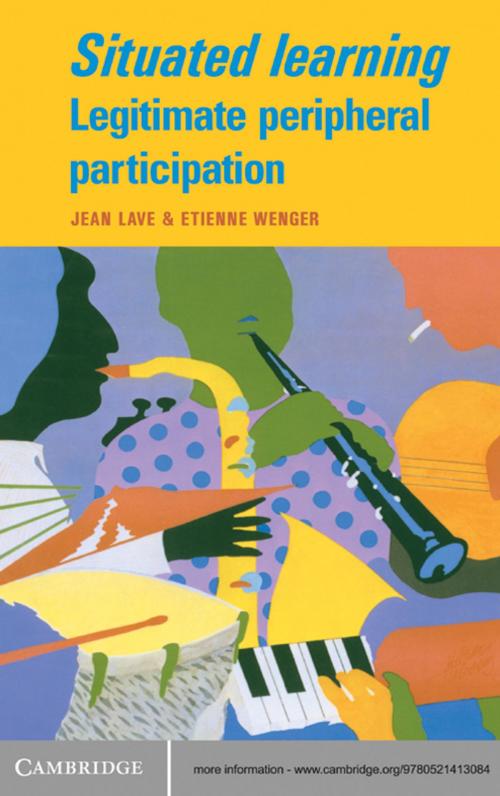Situated Learning
Legitimate Peripheral Participation
Nonfiction, Health & Well Being, Psychology, Developmental Psychology| Author: | Jean Lave, Etienne Wenger | ISBN: | 9781139635776 |
| Publisher: | Cambridge University Press | Publication: | September 27, 1991 |
| Imprint: | Cambridge University Press | Language: | English |
| Author: | Jean Lave, Etienne Wenger |
| ISBN: | 9781139635776 |
| Publisher: | Cambridge University Press |
| Publication: | September 27, 1991 |
| Imprint: | Cambridge University Press |
| Language: | English |
In this important theoretical treatist, Jean Lave, anthropologist, and Etienne Wenger, computer scientist, push forward the notion of situated learning - that learning is fundamentally a social process. The authors maintain that learning viewed as situated activity has as its central defining characteristic a process they call legitimate peripheral participation (LPP). Learners participate in communities of practitioners, moving toward full participation in the sociocultural practices of a community. LPP provides a way to speak about crucial relations between newcomers and old-timers and about their activities, identities, artefacts, knowledge and practice. The communities discussed in the book are midwives, tailors, quartermasters, butchers, and recovering alcoholics, however, the process by which participants in those communities learn can be generalised to other social groups.
In this important theoretical treatist, Jean Lave, anthropologist, and Etienne Wenger, computer scientist, push forward the notion of situated learning - that learning is fundamentally a social process. The authors maintain that learning viewed as situated activity has as its central defining characteristic a process they call legitimate peripheral participation (LPP). Learners participate in communities of practitioners, moving toward full participation in the sociocultural practices of a community. LPP provides a way to speak about crucial relations between newcomers and old-timers and about their activities, identities, artefacts, knowledge and practice. The communities discussed in the book are midwives, tailors, quartermasters, butchers, and recovering alcoholics, however, the process by which participants in those communities learn can be generalised to other social groups.















